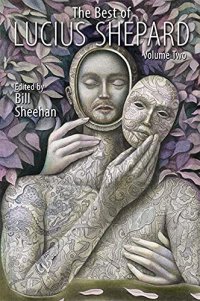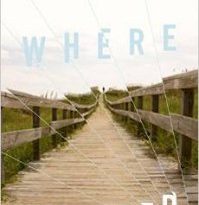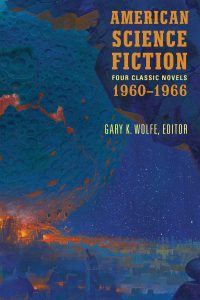Paul Di Filippo Reviews The Best of Lucius Shepard Volume Two
 The Best of Lucius Shepard Volume Two, edited by Bill Sheehan (Subterranean Press 978-1645240358, hardcover, 844pp, $50.00) December 2021.
The Best of Lucius Shepard Volume Two, edited by Bill Sheehan (Subterranean Press 978-1645240358, hardcover, 844pp, $50.00) December 2021.
When Subterranean Press gifted us all with The Best of Lucius Shepard in 2008, the author still walked among us, with some six productive years left in his wide-ranging, extravagant, hectic, and literarily prolific life. (He died in 2014 at the too-young-but-still-amazing-for-his-profligate-ways age of seventy.) One can presume Shepard had a hand in selecting the contents of that volume, and that those stories which were excluded were perhaps somewhat less accomplished than those selected. So what can one make of a new compilation, whose contents, with a single exception, are all pre-2008, thus eligible for Volume 1? Are they second-string stories, not really “the best?”
Having just sojourned through all 300,000 words of this massive new selection, I will venture to say that such is not the case. These tales are all fully the equal of those on the earlier table of contents, in skill, interest, and levels of enjoyment. I suspect that because of Shepard’s unrelenting and mostly invariant high standards of production, the contents of the first volume could be represented as “not exactly the indisputable most accomplished stories by this author, but simply a quasi-random cherry-picking from among a host of equals.”
But however you personally estimate the comparative worth of each volume, you will find nothing but quintessential Shepard wonders here. I’ll try to offer a quick portrait of what that means at the end. But meanwhile, here’s what’s on tap.
The stories are presented in order of publication, ranging from 1984 to 2009. Three of them—”Aztechs,” “The Last Time,” and “Ariel”—have never been collected previously, since their one and only magazine appearances.
On the Caribbean island of Guanoja, a fellow named Ray Milliken believes he can contact intelligent aliens from his grotty base of Port Ezekiel. (“That name, as much as anything, had persuaded me of Ray’s insanity…”) But when he succeeds, the arrival of the Other is not what anyone expected. From here, human passions complicate matters. This item, “A Traveler’s Tale”, comes from almost the very start of Shepard’s career and represents a simpler, less recomplicated style and narrative than he was to later produce.
“Surrender” chronicles a cynical reporter (“This is show biz, right?”) on assignment in a Third world country, where he capriciously tracks down a rumor of a secret research project. But his quest for political scandal soon devolves into a kind of genetic-engineering zombie invasion.
One day at a convention, Lucius Shepard told me he knew how to produce a story guaranteed to win a Hugo, containing all the classic tropes that appealed to voters. “I’m going to call it ‘Barnacle Bill the Spacer.’” Well, his confidence or bravado was justified, as the 1993 Hugos showed, and the result is probably as close as Shepard ever got to a Heinleinesque tale, with a dash of Sturgeon-style “misfit” characterization. On a space station, the ups and downs of the differently-abled title character thread through the powerplays of the narrator and others.
Another reporter is at the center of “The Last Time”, whose doomed love story morphs into near-splatterpunk body horror. “I began slashing wildly at the strands, at the dripping, gobbety ties that bind, like someone clearing weeds.”
Far in the future, remnants of mankind live a constricted life in Edgeville, under the monitory eye of the posthuman Captains. An attempt to break out of this easy bondage leads to an expedition of almost Clark Ashton Smith weirdness. Thus is “Human History” written.
Like some lost Val Lewton script, “Crocodile Rock” finds our narrator—an on-the-skids scientist expert in snake lore—taking on the task of investigating murders supposedly performed by were-crocodiles. The opening line of the tale—“You must not think of me as a reliable witness, as someone immune to bias and distortion.”—characterizes so many of Shepard’s protagonists.
Never really typecast as a cyberpunk—although the Life During Wartime sequence certainly qualifies him—Shepard was nonetheless capable of turning out echt examples of this mode, as seen in “Aztechs”, which mixes life on the USA-Mexico border with AIs, corporations and the typical grim’n’gritty cast.
“The Drive-In Puerto Rico” refers to a bar where our hero, a national icon for his military experiences, likes to idle. That is, until he chooses to get mixed up with an American reporter looking to flee the country with a scoop. Thank goodness he has a mystical lizard spirit guide to help!
A kind of portal fantasy, “A Walk in the Garden” finds soldiers questing in a strange dimension opened up by a chance bombardment. Something of a precursor to Jeff VanderMeer’s Southern Reach series.
As the title hints, “Ariel” indeed evokes an elvish air in its depiction of an exotic, nonhuman female who enters our world with a seeming naivete, but then proves to be involved with all the ancient factions and wars of her original homeland, causing deadly troubles for those who choose to love her.
Need I say more about “Liar’s House” than that it concerns the Dragon Griaule, one of Shepard’s most famous creations? Here, our protagonist, a simple man named Hota, meets a woman named Magali, who bears a curious relationship to all things dragonlike.
A naturalistic tale, “Jailbait” is a warped love story between Madcat, an older man, and a young girl named Grace, who live the rough-and-tumble life of hobos and rail-riding tramps. Amazingly for Shepard, it’s kind of a happy ending.
The tiny island depicted in “Dagger Key” is the site of a noirish scam—ancient treasures sought for big money, but betrayal as the ultimate payoff—which is layered with fantastical doings involving undead pirate women. Think Tim Powers blended with Donald Westlake.
The final story, “Dog-Eared Paperback of My Life”, is, to my mind, the knockout entry, only because it seems to be the most personal for Shepard, and is the most restrained, subtle, and multivalent. Our narrator, one Thomas Cradle, a writer, discovers that there is another man using his byline. As he begins idly to investigate this unmet doppelganger, Cradle Two, our Cradle decides to try to replicate a famous expedition taken by Cradle Two. The Asian trip devolves into a Conradian, Borgesian odyssey of drugs and “debauched” sex, culminating in a kind of Tiptree encounter with a seductive entity. Emerging from this multiversal quasi-transcendence, Cradle returns to his vocation as a kind of plagiarist of his many selves. Wow, talk about Shepard critiquing mercilessly his own career, or that of any long-term genre professional.
What can we say in general about Shepard and his fiction? He was a maximalist, preferring to include as much as possible, not to winnow and pare down. This sometimes gives his stories a baggy-pants voluminous feel, and explains why his favorite length was the novella. He was a fatalist and a tragedian, with any humor being of the darkest sort. He mercilessly and fearlessly plumbed his own life and soul for material and laid it out under a harsh but esthetically contoured light. He wrote piercingly of sex, but only along certain dimensions between a man and a woman. And, ultimately, he believed in redemption and comprehension, if you got lucky, as our hero stipulates in “The Drive-In Puerto Rico”. “I am beginning to believe there are places made for us in this world, and if we find them, we may understand patterns in our lives, in all life, that are immune to straightforward analysis.”
Once again, recalling Lucius personally, I remember when he said of himself, “I was a member of a rock and roll band, and after that there was nowhere further down to go than science fiction writer.” If this be so, than Shepard’s accomplishments illustrate that life is circular, and that the bottom rung might very well also be the pinnacle of life, if one devotes as much energy and talent to it as Shepard did.
 While you are here, please take a moment to support Locus with a one-time or recurring donation. We rely on reader donations to keep the magazine and site going, and would like to keep the site paywall free, but WE NEED YOUR FINANCIAL SUPPORT to continue quality coverage of the science fiction and fantasy field.
While you are here, please take a moment to support Locus with a one-time or recurring donation. We rely on reader donations to keep the magazine and site going, and would like to keep the site paywall free, but WE NEED YOUR FINANCIAL SUPPORT to continue quality coverage of the science fiction and fantasy field.
©Locus Magazine. Copyrighted material may not be republished without permission of LSFF.







